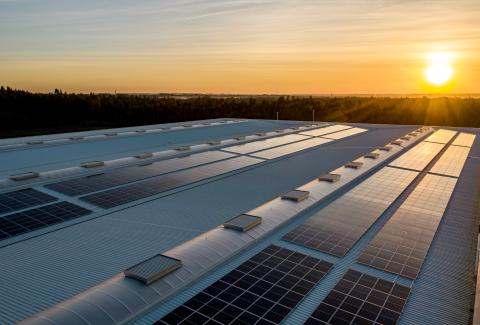Arch Coal Versus the Vatican
You have to wonder what Thomas Altmeyer, an Arch Coal lobbyist in Washington, was thinking when he sent around an email this week taking on Pope Francis.
Altmeyer presumably meant the missive to be seen only by the members of Congress he directed it to. But, as emails will, it leaked. It was picked up by Salon.com on Wednesday and described in a story by Jacob Barker of the St. Louis Post-Dispatch, Arch’s hometown newspaper, on Thursday.
Altmeyer, as people in his profession will, stays mostly (and wisely) behind the scenes, working the inside-Washington ropes and pulleys. He joined the company in 2002 after long stints as a lobbyist with the National Coal Association and the National Coal Association and is a board member of something called the Washington Coal Club.
His email was is in response to the Pope’s widely-publicized encyclical this week, “On Care for Our Common Home,” which calls on the human race to gets it act together. Here’s the part the coal industry didn’t like:
“We know that technology based on the use of highly polluting fossil fuels—especially coal, but also oil and, to a lesser degree, gas—needs to be progressively replaced without delay.”
Replace coal? Altmeyer suggests that the Pope—who is not only wildly popular but also leads a church that accounts for half of all Christendom—should shut up and stick to his Vatican knitting, and Altmeyer in his email offers an Arch coal counterpunch laid out in “talking points on global poverty.”
The main one: “Coal is the only feedstock for base-load electricity capable of providing the energy emerging economies and struggling communities need to rise up out of abject poverty and towards a newfound hope.”
In urging the Pope to butt out, Altmeyer and Arch Coal, the second-biggest U.S. coal producer, is parroting a public relations strategy Peabody Energy started last year. Peabody, the largest U.S. producer and the biggest privately owned coal company, invested heavily in that campaign under CEO Gregory H. Boyce, who is a climate-change denier and —who knows? — perhaps is referred to within the corridors and conference rooms of Peabody Energy as Pope Gregory.
Boyce, as CEOs will, also has a gift for speaking in riddles.
“The best way to reduce carbon and further human development,” Boyce said this past September, “is to accelerate deployment of today’s advanced coal technologies that provide continued environmental improvement.”
HATS OFF TO THE AUSTRALIAN BROADCASTING CORPORATION AND REPORTER GEOFF THOMPSON FOR A BRAVE AND ENGAGING 43-minute public-television documentary this week rhetorically titled “The End of Coal?”
The show, which goes where few other examples of Australian journalism have gone before, begins ominously with Prime Minister Tony Abbot speaking autocratically into the camera and saying, “Coal is essential for the prosperity of Australia, coal is essential for the prosperity of the world, and coal is the world’s principal energy source—and it will be for many decades to come.”
It cuts from there to Valerie Rockefeller Wayne explaining the Rockefeller Brothers Fund’s recent divestiture from coal and wondering at entrenched Australian resistance to the ongoing transformation of global energy markets.
“Australia is an extremely progressive country that has been an important player on so many issues,” Wayne says. “It is baffling to me why the current Australian government is stuck in the past rather than looking toward the future.”
The program spends the rest of the time taking Abbot’s assertion apart as it piles up evidence—including extensive research by IEEFA’s own Tim Buckley—that addresses, in often painful detail, its opening question: “Is Australia digging itself into a hole with its continuing attachment to this unfashionably dirty fossil fuel?”
CONTENT IS KING, AS THEY SAY, AND COLLABORATIVE CONTENT IS BECOMING ESPECIALLY POWERFUL as news and research organizations team up more often to produce material that would be less informed without such partnerships.
The most recent energy-industry case in point comes in a segment that aired this week on West Virginia Public Radio, produced in tandem and co-published with SNL, the energy industry trade publication. It appears here under the headline “‘Societal Depression’ Settles Over Coalfields as Layoffs Rock Central Appalachia” and links to a page anchored by data visualization that demonstrates the adage that a picture is worth a thousand words.
The project combines the work of the radio network’s Dave Mitsch and SNL’s Taylor Kuykendall to put a stark human face on a persuasive body of statistics.
Karl Cates is IEEFA’s director of media relations.















